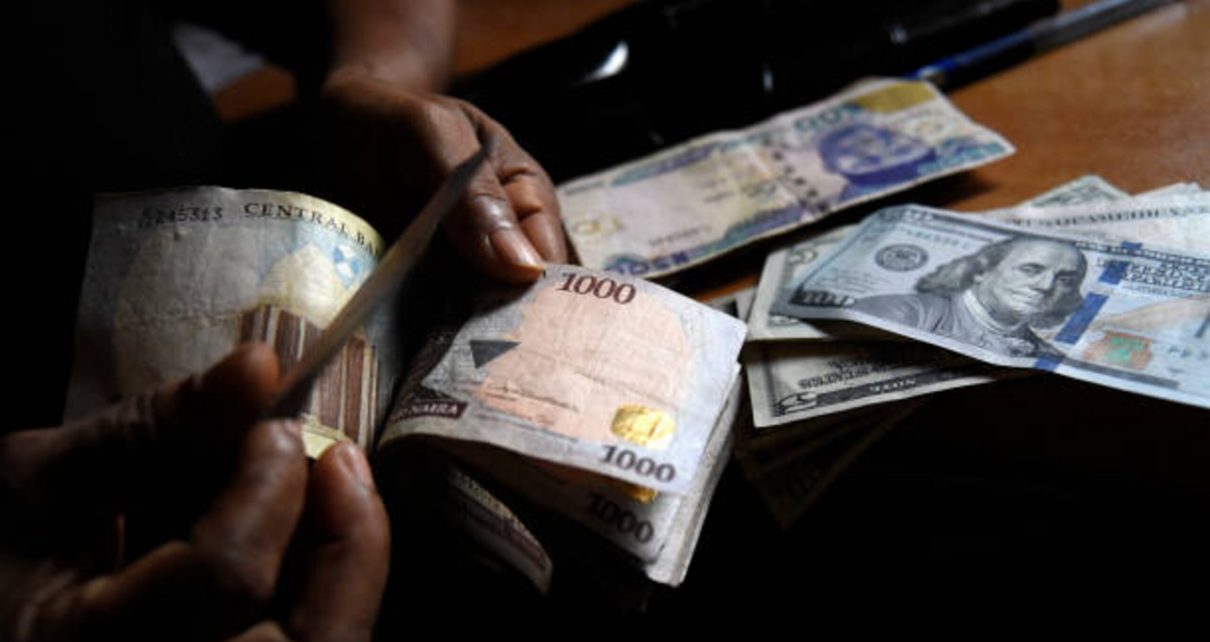The Nigerian naira is on the verge of breaking the 1,000 naira per dollar barrier, approaching an official record low of 999 naira last week, as reported by Refinitiv data. The naira’s recent depreciation is primarily attributed to its performance in the unofficial market, where it is allowed to trade freely. Reuters has extensively covered the developments leading to this situation.
In a bid to revitalise transactions through the official market and work towards achieving a unified exchange rate for the naira, President Bola Tinubu removed foreign currency controls in June. However, contrary to expectations, this decision has contributed to the currency’s weakness and added to rising inflation, as highlighted by Reuters.
What’s Driving the Naira’s Decline?
Reuters has pointed out that the central bank is grappling with a substantial backlog of unmet demand for foreign exchange (forex) on the official market. This backlog effectively compels individuals and businesses to resort to the black market to access dollars. The root causes of this issue lie in declining investments and a reduction in crude oil exports, which constitute over 90% of Nigeria’s export income.
Reuters has also reported that despite the initial optimism among investors when currency controls were lifted, the expected easier access to foreign currency has not yet materialised.
Addressing the Foreign Currency Backlog
According to Reuters, Nigeria now faces a backlog of nearly $7 billion in overdue forex forwards, which were originally acquired by corporates from local banks. When the central bank was unable to meet these obligations, banks had to use their own funds to repay foreign credit lines. Reuters has detailed how this has created challenges for corporates seeking new letters of credit, while banks are left with outstanding dollar debts.
Reuters has reported that the new central bank governor, Yemi Cardoso, has made clearing this backlog a priority. However, no specific timeline has been provided for this process. Some analysts, as noted by Reuters, have suggested the possibility of rolling over the forward agreements for 24 to 36 months, granting the central bank more time to secure the necessary dollars for corporate repayments.
The State of Nigeria’s Forex Reserves
Reuters has noted that official central bank data shows a decline in Nigeria’s forex reserves from $37 billion in January to $33.5 billion in September. In a significant development, the central bank published audited accounts for the first time since 2018, as reported by Reuters. These accounts revealed that the reserves include a substantial commitment of $19 billion in derivatives, significantly diminishing the liquid portion of the reserves. Reuters also cites JPMorgan’s calculations, which indicate that Nigeria’s net FX reserves were a mere $3.7 billion as of the close of 2022, significantly lower than previous estimates.
Reuters has also highlighted the decline in Nigeria’s crude excess account, reaching just $473,755 in August, down from its peak of $20 billion in 2008. Successive governments withdrew dollars from the account to support the naira and budget spending, according to Reuters.
The Future of Forex Open Positions
Reuters has outlined the current regulations, indicating that Nigerian banks are prohibited from maintaining open positions in the dollar. This means they are unable to purchase forex for their own accounts or speculate on the currency’s value. As reported by Reuters, these open net positions are crucial for banks to finance short-term trade lines without relying on the central bank for bidding. Allowing banks to make the market on the dollar could potentially weaken the local currency further, as rates would fluctuate based on supply and demand.
Reuters also references Nigeria’s 2024 budget, which assumes a benchmark exchange rate of 700 naira to the dollar. The finance minister’s argument, as reported by Reuters, is that the parallel market rate, which stands at 1,300 naira, does not accurately reflect the true value of the naira. Capital Economics, cited by Reuters, predicts that given the naira’s ongoing weakness in the parallel market, further devaluations and inflationary pressures are likely to follow.


